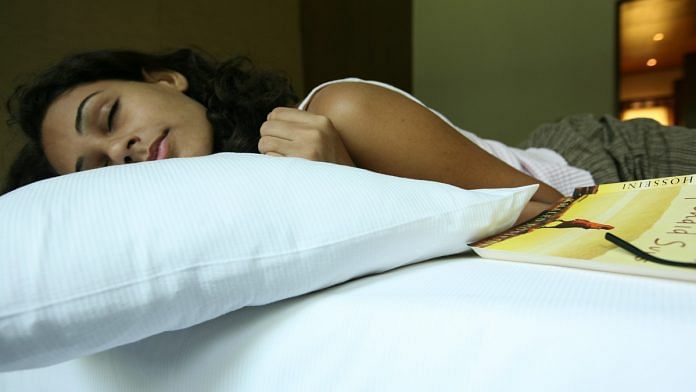Several people struggle to keep up with the conventional routine of sleeping and waking up early. While you may think it’s a lifestyle choice, it’s not.
Bengaluru: If you’ve repeatedly vowed to sleep and wake up early, but still can’t help a TV binge that keeps you up till 3 am, don’t worry. Staying up late may not be a lifestyle choice at all, but just how you are wired.
Different people have different patterns of the circadian rhythm, i.e. the body clock that runs in accordance with the Sun. While some people are early risers, others are late sleepers. Although sleep patterns can be changed, the natural preference for some people is a part of their biological makeup. This is called a chronotype.
A person’s chronotype dictates their daily schedule: When they wake up, when they sleep, when they eat, and when they are most productive. The chronotype of a ‘lark’ or early bird is scientifically called ‘morningness’, while the ‘owl’ is called ‘eveningness’.
Left to themselves, night owls’ body clocks automatically tend to align to late nights and late mornings. They are more productive after sundown, and find it hard to sleep or wake up early. Their body clock experiences what is called a ‘phase delay’.
Phase delay is evolutionarily thought to have a purpose. Scientists who studied activity patterns among a hunter-gatherer tribal group in Tanzania called the Hadza discovered that while some members of the group slept early at night, others kept awake. Over 20 days of observation, there were only a total of 18 minutes where all members of the group were asleep simultaneously. On average, eight people stayed up through the night each day.
Also read: Did we sleep twice rather than once? And should we do it again?
The sentinel theory
The scientists concluded that this observation lent credence to the sentinel theory. Proposed in 1966, it states that humans and animals have evolutionarily learned that it was safe to sleep during times of danger only when “sentinels are employed to remain vigilant”. This explains why, when some people sleep, others are naturally tuned to wakefulness. The latter, in turn, sleep well when the early birds wake up in the mornings. This chronotype variation is found across animal species.
This control of the body clock and its circadian rhythm is performed by a region of the brain called the suprachiasmatic nucleus. Sometimes the brain’s control gets overridden by environmental factors. If an owl needs to be at work at 9 am, they have to be there sharp, with ample help from alarm clocks.
Chronotype variation is also observed across ages: Babies and old people typically tend to prefer lark timings, while adolescents and teenagers tend to be owls.
It is possible for owls to adopt the habits of larks, but it comes at a much higher exertion of will power. An owl can set their alarm back 15 minutes each day and wake up when it goes off. Eventually, their bodies can adapt to waking up early. However, in today’s sleep-deprived world, a weekend’s sleeping-in will promptly reset the owl’s clock to its original phase delay.
Similarly, it is possible for a lark to become an owl too, the cause being exposure to artificial light. The more we peer into our devices when it’s dark outside, the more we trick our brain into thinking it’s daytime and shifting our clock to a more delayed sleep time.
So, the next time you are tempted to hit the snooze button on a weekday morning, remember that there’s a biological reason why you went to sleep at 3 am. But also remember that it doesn’t make a difference.
Also read: Delayed breakfast and an early dinner can help you lose body fat




Very reassuring – I go to sleep when God fearing people start a new day.